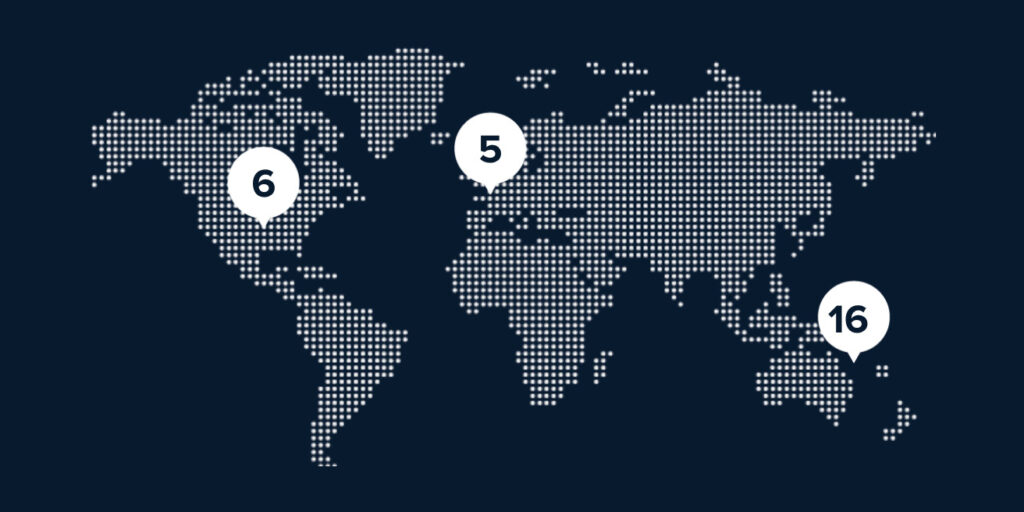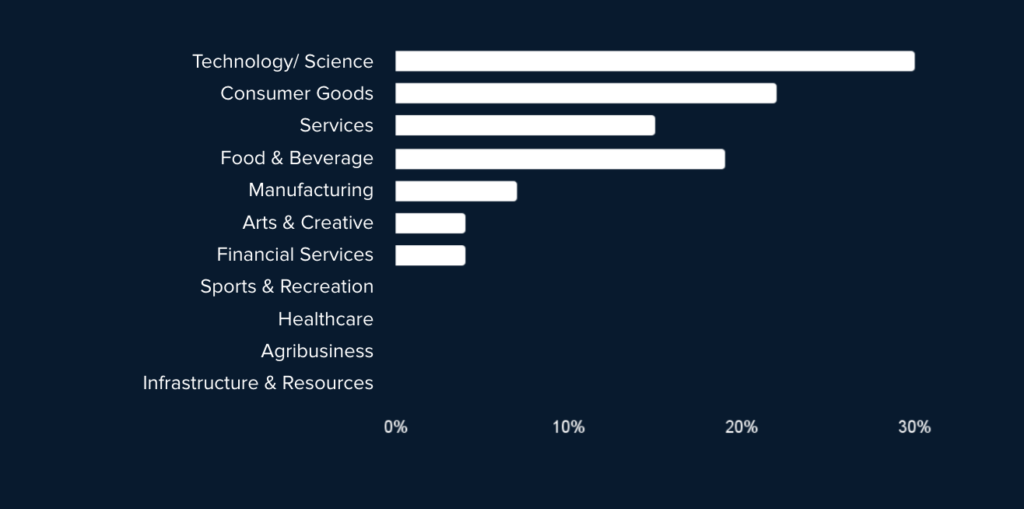
With your international focus, how early did you appreciate the implications of Covid-19?
Because our largest international team is based in China, we became aware of the implications in late January, and especially once the Chinese Government extended the Chinese New Year holiday by a week.
Our people there were in lockdown from that point, and we needed to deal with the implications of our people working from home at short notice. For example, in China it meant couriering laptops to our people in their homes so they could continue to work remotely.
The situation had implications for the wellbeing of our people, so we introduced mental health support from the very start. At the moment, around half of our 41 overseas offices are open or accessible (for example, some work on split shifts). That means many of our people have been largely confined to their homes or apartments for months.
How did you respond on behalf of export companies?
At the start of February we created a special pandemic page on our website, providing information on what was happening in China – whether the ports were open, how people were sourcing food and so on.
As the pandemic spread we created a whole new website, which now has more than 100 pages and has been visited by more than 100,000 people, providing exporters with insights and practical information from around the world. You can find it here.
As borders started to close, our international people really stepped up, taking on more responsibility for our exporters, helping them maintain relationships with their key connections in-market, and being their eyes and ears on the ground. Our people are still doing that, it’s a core part of how we continue to help.
In New Zealand, we realised that companies needed immediate and practical advice on how to keep operating, so we moved $4 million from our normal operating expenditure to create an Export Business Continuity Service, in partnership with PwC, Deloitte and KPMG. The service provided them with access to one-on-one professional services to help them manage the impacts of Covid-19 on their business.
We began running cashflow clinics, and through the Regional Business Partner network we were able to deploy the Government’s early $15m in support for business advice. This network has just received another $40m, to connect firms with expert advice at no cost to the business. Advice covers topics like business strategy, finance and cash flow, continuity planning, HR and employment relations, digital services, marketing, and health and wellness for owners and staff.
And we also got involved in airfreight – something that NZTE had never looked at before! We heard from our exporters that, with passenger flights stopping – and most fresh produce goes in the hold of passenger flights – they were facing real problems. So we worked with the Ministry of Transport, Air New Zealand and the freight forwarders to stand up a system that kept planes going to our major export cities, even without passengers.
Can you sustain this level of support for exporters?
In fact we can and will do more. In this year’s Budget we received an additional $216 million over the next four years as part of the New Zealand Government’s Plan for Trade Recovery.
We’re deploying that funding in three ways: scale, intensity and reach. I’ll start with reach, which means we can share our great information and tools with all 12,000 Kiwi exporters, thanks to a complete overhaul of our website, and in particular our new myNZTE digital portal.
Intensity means we’re doubling the number of companies, from 700 to 1400, that we work really closely with, to give them the best opportunity to grow internationally.
And scale is my focus, which includes increasing the number of people overseas to provide even more resources and support for exporters.
How many people are you hiring and where will they work?
All up our first stage of recruitment will add 35 people to our international network.
We have provided secondment opportunities for five people from Tourism New Zealand – two in Sao Paolo, two in Los Angeles and one in London. They will be joined by a number of others in Australia, the Middle East, Europe, China and East Asia to drive a lot more content for our exporters – it’s really important, when you can’t fly into market, that you have access to high-quality, real-time information.
We are also increasing our number of market analysts, again so we can help exporters with specific information that will enable them to activate their export strategies.
And then we are increasing our number of Business Development Managers, the people who deal directly with exporters to help them make the right connections. We are adding five into North America (four in the US and one in Canada), five into Australia, one into the UK, and two more into East Asia (Tokyo and Singapore).
The important thing to remember is we generally hire local people, who have experience and expertise in those countries and in specific sectors. So, for example, the BDMs in the US will be specialists in Food & Beverage, Health & Wellness and Specialised Manufacturing.
I have to say that the quality of people wanting to work for New Zealand is absolutely outstanding. Brand New Zealand is alive and well internationally and great people want to be part of it.
By the end of this financial year we will recruit another tranche, but we will decide the exact number and where they need to be based on demand from the exporters we work with.
At NZTE, we have always worked on the principle that we go where our customers need us.
Finally, do you have any tips for exporters on how to succeed in a Covid-19 world?
Digital, digital, digital. This was already a strong theme before the pandemic, but it’s crucial right now. It doesn’t matter whether it’s digital lead generation, digital sales and marketing, digital B2C or B2B, or even digital (virtual) trade shows, you just have to build your capability. It’s why digital skills are a key part of myNZTE.
This has also had an unexpected advantage for New Zealand. One of our problems has been the tyranny of distance, our place at the bottom of the world. In the tech sector, this has meant our great entrepreneurs and innovators have had to travel to America for face-to-face meetings to explain their products.
But with no one travelling at the moment, there is a greater willingness to do business digitally – meet via Zoom, for example – so our technology specialists are able to build business relationships much faster and at less cost. Even the more traditional markets like Japan are embracing this new way of doing business.
Secondly, don’t forget to continue to connect with your partners and distributors in market. We are finding that most distributors are focussed on working with their existing partners – not finding new ones – so keep working that channel.
Exporters should take advantage of the fact they come from New Zealand. Despite the recent outbreak in Auckland, we have drawn global attention for our Covid-19 response, and this means New Zealand has gained a platform that can be leveraged to promote NZ businesses.

 MENU
MENU


















